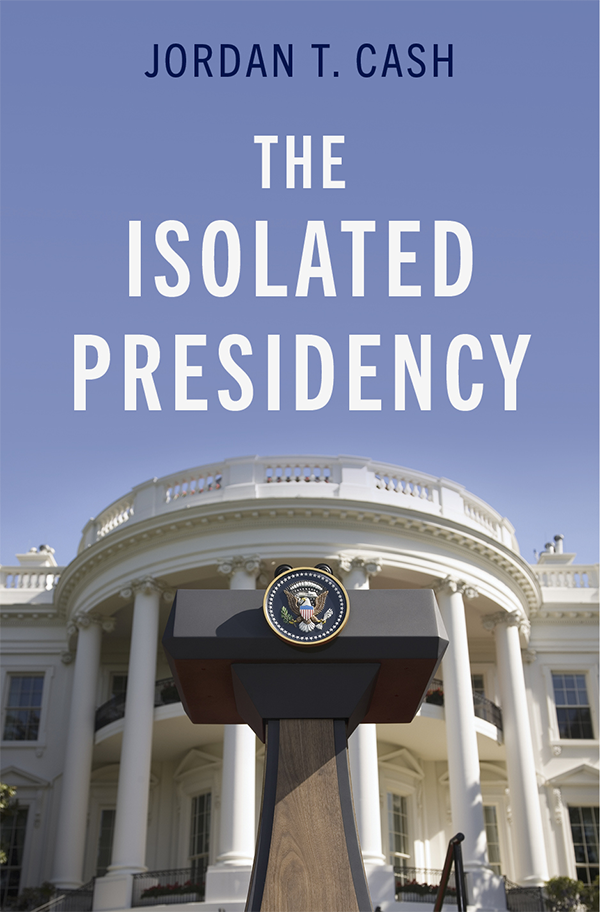A new book written by Jordan Cash, assistant professor of political theory and constitutional democracy in James Madison College, explores the power U.S. presidents possess by examining specific presidencies throughout history. Published by Oxford University Press, “The Isolated Presidency,” analyzes three isolated presidents: Tyler Johnson, Andrew Johnson and Gerald Ford.
Cash’s approach susses out a common notion that the presidency is not very strong.
 “The book examines how powerful the president is and what powers a president can rely on by investigating how three unelected presidents, who faced divided government and were opposed by major factions of their political party, used their Constitutional authority to pursue their policy objectives,” Cash said.
“The book examines how powerful the president is and what powers a president can rely on by investigating how three unelected presidents, who faced divided government and were opposed by major factions of their political party, used their Constitutional authority to pursue their policy objectives,” Cash said.
“The Isolated Presidency” is Cash’s first book. The idea originated in the spring of 2015, his first year as a graduate student at Baylor University where Cash earned a doctorate in political science.
Cash asserts the U.S. Constitution creates a powerful presidency, pushing back on the argument that it wasn’t until the modern era that the presidency became a truly influential position. “By focusing on the presidents many would consider to be losers, we see that it is the Constitution that empowers them to achieve their policy goals,” said Cash.

While Cash is hopeful students and scholars of American politics will read his book, he acknowledges his students regularly receive lessons from it. “The theory of the book is very evident in my teaching. My teaching of the institutions comes out of this theory — how the structures and duties of each branch relate to each other.”
For his next project, Cash intends to explore “the inverse.” “I want to look at those presidents that had all the advantages these [three] did not have and see how the Constitution positions the other branches to limit their power,” said Cash.
“The base line of the presidency is higher than people think. ‘The Isolated Presidency’ establishes the floor of presidential power and, in my next project, I will hopefully establish the ceiling.”



.png?h=384&iar=0&w=555)


